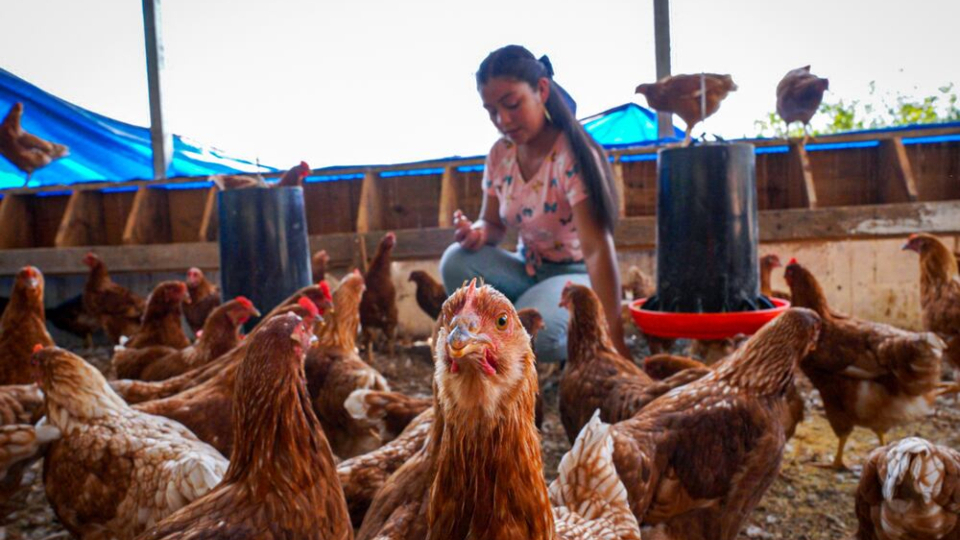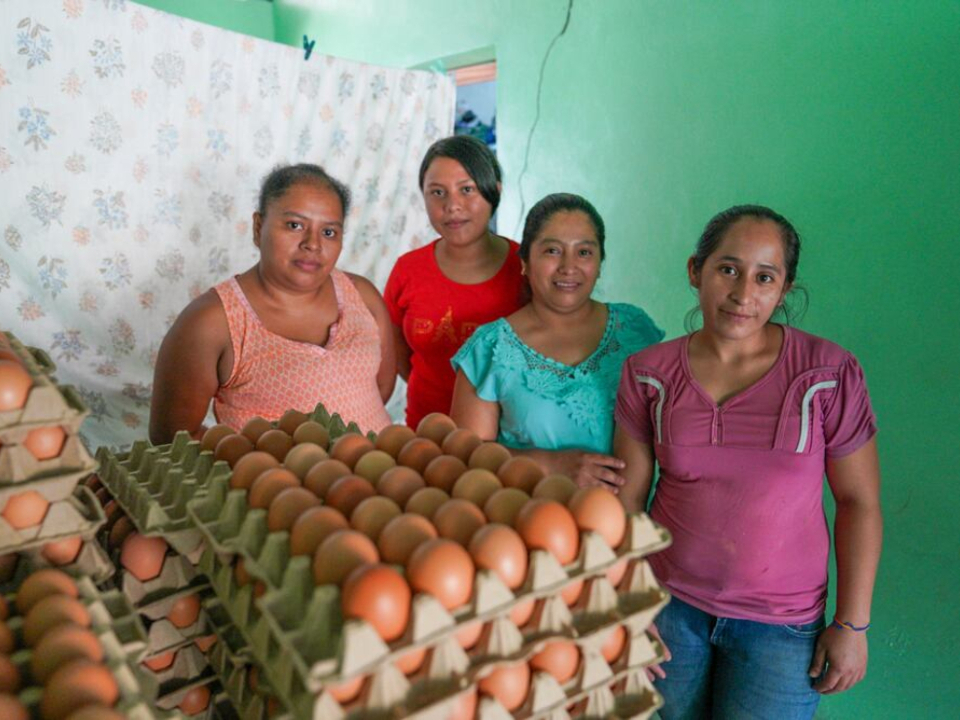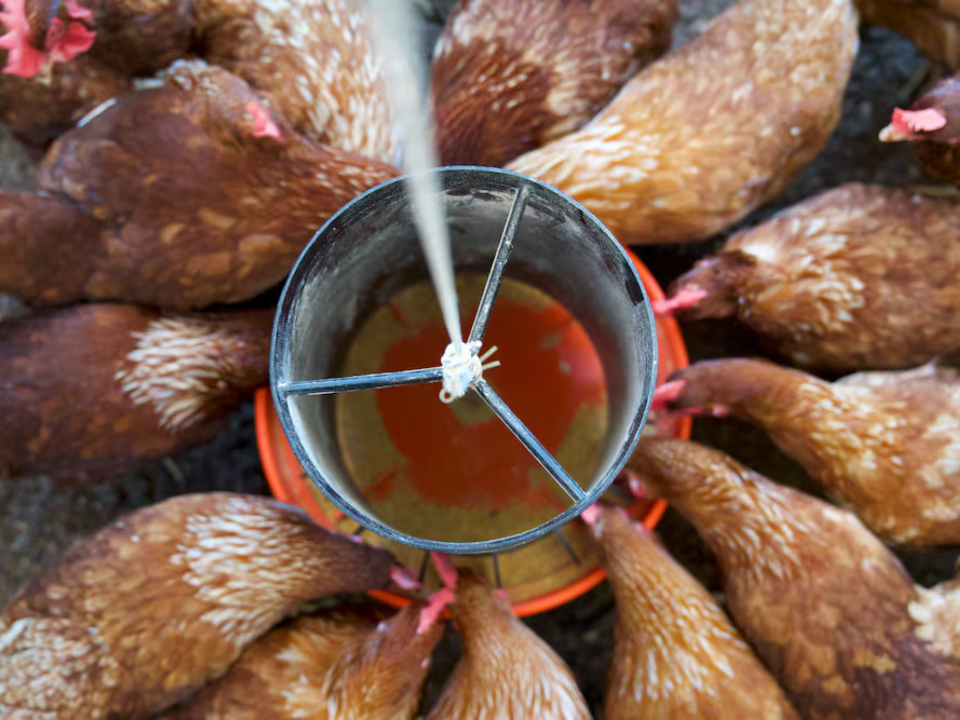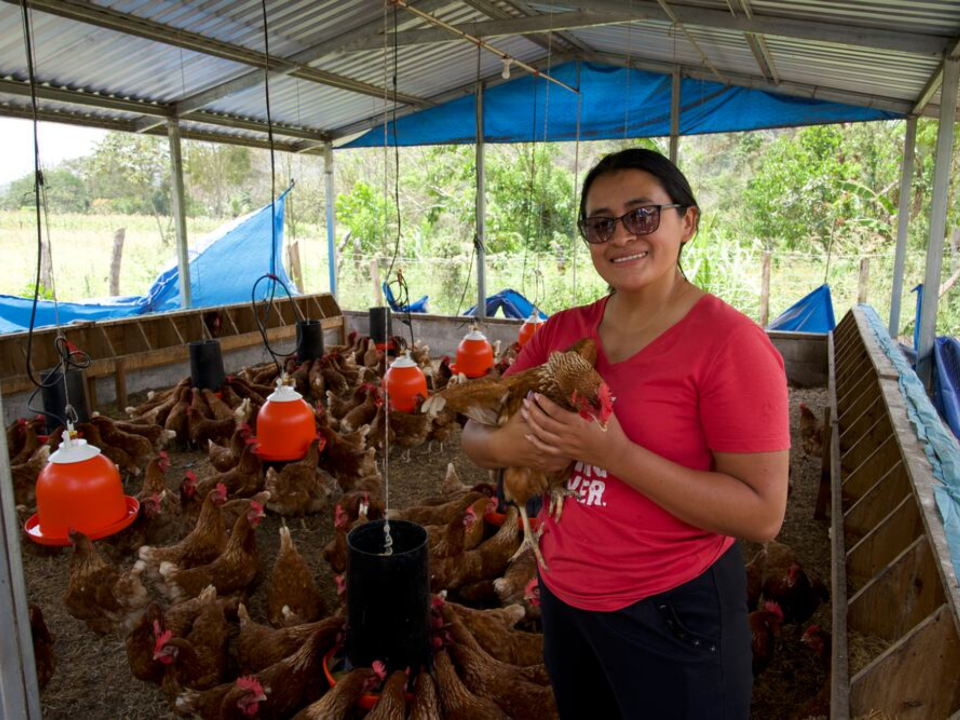
hatching-hope-honduras-1.jpg
A woman cares for chickens as part of the Hatching Hope initiative from iDE with the support of The Church of Jesus Christ of Latter-day Saints in Honduras in 2024. Photo provided by iDE, courtesy of Church News.All rights reserved.This story appears here courtesy of TheChurchNews.com. It is not for use by other media.
By Mary Richards, Church News
Remote communities in the Central American country of Honduras face significant challenges, including limited access to resources and few economic opportunities.
But a poultry farming initiative is changing things, especially for women. The Hatching Hope initiative is from iDE — a nonprofit organization that powers entrepreneurs to end poverty — with support of The Church of Jesus Christ of Latter-day Saints.
The initiative provides tools, training and support for raising chickens and producing eggs. The eggs become sources of better-quality nutrition and income — thus enhancing food security and economic stability while empowering women.
Women in the group not only earn money from selling the eggs, but the community also has a local source of protein at a lower price and higher quality.

hatching-hope-honduras-2.jpg
A group of women shows some of the eggs produced for the Hatching Hope initiative from iDE with support of The Church of Jesus Christ of Latter-day Saints in Honduras in 2024. Photo provided by iDE, courtesy of Church News.All rights reserved.Recently, iDE, formerly known as International Development Enterprises, was one of eight organizations receiving part of a $55.8 million donation from the Church to help women and children in high-need countries.
The Church has focused humanitarian aid on women, through its global initiative for women and children led by the Relief Society.
Berta Hernandez is the president of a women’s group in the community called Manos Unidas, or United Hands, in the remote Indigenous community of Monte de los Negros. She has become a pivotal figure in driving positive change in her community by taking the lead in Hatching Hope.
“As women in remote Indigenous communities, we often lack opportunities like this project provides,” Hernandez said. “I am proud to lead and bring positive change, showing that our efforts and sacrifices have a purpose.”

hatching-hope-honduras-3.jpg
Hens feed in a coop in Honduras in 2024. The Church of Jesus Christ of Latter-day Saints is supporting iDE's Hatching Hope initiative to help women with egg production in remote communities. Photo provided by iDE, courtesy of Church News.All rights reserved.Hernandez feels the collective effort of the women in her group shows that perseverance and unity can help them overcome the challenges of living in such a remote place.
“A leader without community is nothing, and a community without a leader neither,” Hernandez has often said.
In the northern region of Copán, Yuri Guerra — a single mother and student — has taken on a leadership role to initiate and guide the poultry project in her community of Sesesmil Primero.
For Guerra, the initiative was not just about raising chickens; it was a way to acquire more knowledge about poultry care and management.
“Knowledge is the basis of every human being, and so it is nice to have and to know how to handle the birds,” she said.

hatching-hope-honduras-4.jpg
Yuri Guerra cares for her chickens as part of the Hatching Hope initiative from iDE with the support of The Church of Jesus Christ of Latter-day Saints in Sesesmil Primero, Honduras, in 2024. Photo provided by iDE, courtesy of Church News.All rights reserved.She has gained more confidence to tackle challenges and grow in her personal and professional life. She also sees how her fellow community members have gained resilience.
“It has been a great opportunity for us,” Guerra said. “We are very motivated by the opportunity that was given to us.”
Guerra would like to see the initiative become a way to have a broader economic development. By expanding the group to include more participants, more women will have direct income opportunities, better employment and financial stability.
The collective effort of the women has led to success. With all the hens among the women’s groups, 1,500 people in the community gained access to higher-quality eggs at more affordable prices. And the women reached a total sales revenue of over a half-million U.S. dollars.
Copyright 2024 Deseret News Publishing Company.